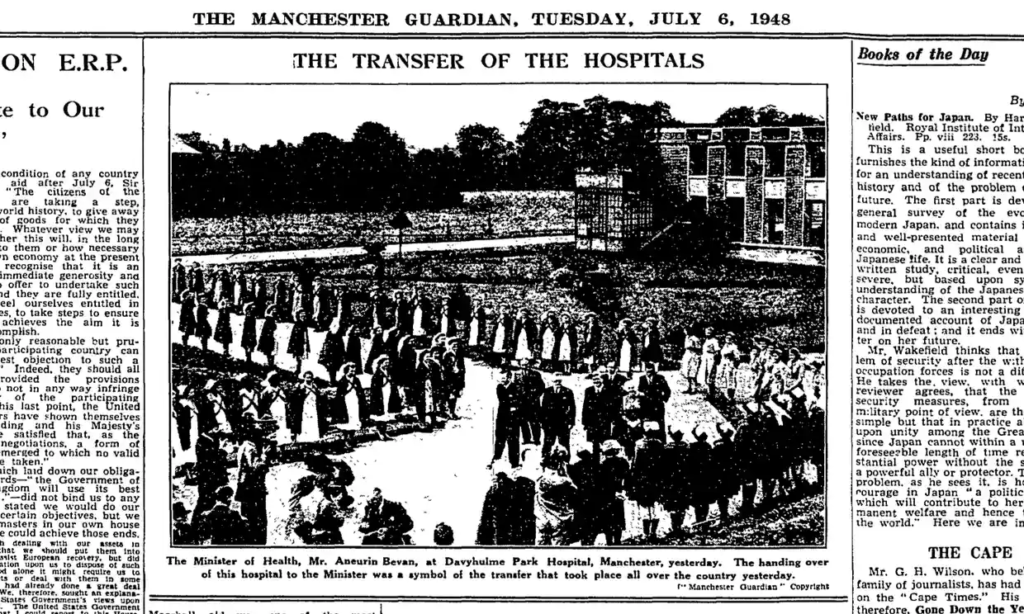On Sunday 5 July 1948, Britain’s National Health Service was born.

Beveridge Report
The NHS as we know it today developed from a government report written during the darkest days of World War II by the economist, Sir William Beveridge. The 1942 Beveridge Report reimagined the postwar nation, with the establishment of a welfare state and universal health service, free and available to all; based on clinical need rather than ability to pay.
‘The essence of a satisfactory health service is that the rich and the poor are treated alike, that poverty is not a disability, and wealth is not disadvantaged.’
Aneurin Bevan
Pre-1948
Until then, healthcare had been an erratic patchwork of services that varied widely by region. ‘Voluntary’ hospitals, directed by charities or local authorities, provided the bulk of health care. Upper- and middle-class patients were barred from public wards and expected to pay in return for greater privacy and higher standards of care.
By the 1930s, hospitals across the country faced financial crises and growing waiting lists. Public anger was also building. In his bestselling novel The Citadel, A J Cronin’s criticised the inadequacies and failures of prewar healthcare provision based on his experiences as a doctor in private and socialised practices. The book’s success has been credited with turning the tide of public opinion for a national health system.
The NHS was launched by Aneurin Bevan, Minister of Health, on 5 July 1948. It was the first universal health system established anywhere in the world to be available to all and financed from taxation. It was also, according to Bevan, ‘the biggest single experiment in social service that the world has ever seen’. The new NHS encompassed 1,143 voluntary hospitals with 90,000 beds and another 1,545 municipal hospitals with 390,000 beds. The new health boards took governance of 2,751 of Britain’s 3,000 hospitals. Hospitals, doctors, nurses, pharmacists, opticians and dentists were all brought together under a single umbrella organisation to provide care for all citizens, free of charge and at the point of need.

On that day Bevan met one of the NHS’s first patients, 13-year-old Sylvia Diggory, who had acute nephritis, a life-threatening kidney condition.

Since its conception 72 years ago, the NHS continues to transform the health and wellbeing of the nation. It has delivered immense advances in both medical and public health, so that we can all enjoy longer and healthier lives. Today, the NHS is facing a great crisis with issues of funding and demand that continue to rise with our ageing populations. Nonetheless, the creation of a nationalised health service, which was once unheard of, was a pivotal moment in British history which continues to be admired by countries around the world.


Leave a Reply